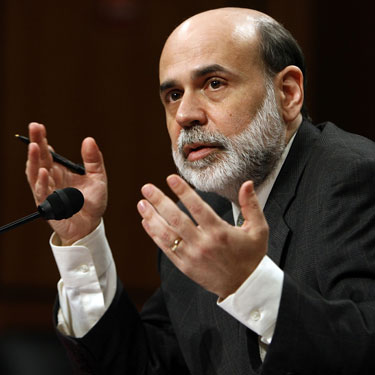 |
| Meh. He was an obnoxious old bastard who always had onions tied on his belt. |
The first fantasy is the stated desire for a pointless and irrelevant bipartisanship. We have two political parties with radically different ideologies and governing philosophies. We hold elections in which we select which political vision we prefer in the near term. Once we select that vision, why would we then insist that the defeated philosophy be included in the governing agenda? If we demand that our political leadership govern on the basis of a "one from column A, one from column B" political model, it's unclear what the point of an election might be.
Our system is inherently partisan, structured as it is around two competing approaches to governing. Over the years those approaches have hardened and crystallized into the two general political ideologies we see today, and have been adopted by their respective political parties. Over time, the old liberal Northern Republicans and Conservative Southern Democrats have switched their party allegiance, to the point now where a politician's political party is pretty much a perfect predictor of his or her politics. Around the world, this condition is most commonly present in a Parliamentary system, where the party that wins the election forms a government that is by definition a legislative majority and simply implements its agenda. There are no negotiations - the opposition is simply out of power, left to criticize and complain until the next election. You hear very little talk of "bipartisanship" in a Parliamentary system.
But here in the US, our elites have decided, quite arbitrarily and with little in the way of supporting evidence, that only legislation that passes with bipartisan support has any democratic legitimacy. This, of course, is a problem as the parties themselves are so deeply polarized, particularly by the radical, extreme right wing positions adopted by the Republicans, that at this point NO bill can pass both houses with significant bipartisan support, creating a condition where, we are told, we simply cannot legitimately govern. Now this may make compelling political advertising, but in a system so obsolete and poorly designed for modern governance, it merely cements the systemic dysfunction and ensures no problem can actually be solved in any meaningful way.
The second fantasy is the related demand for "centrist" solutions. This is nonsensical on many levels, but primarily seems to define the quality of ideas not by what they actually propose to accomplish, but rather by where they fall on the ideological spectrum. It seems completely self-defeating to demand that government address hard problems but then immediately limit the available solutions to those that meet an arbitrary set of ideological criteria. But even beyond that, in today's charged political atmosphere, what would actually constitute a 'centrist' solution? In the US Congress, any solution that requires either deficit spending or increases in government revenue are non-starters, so it becomes quite apparent that, with any fiscal compromise off the table, no legislation anywhere near the center can pass. In the negotiations over the stimulus package in 2009, the Republican Senator Susan Collins agreed to vote for the bill in exchange for a reduction in spending of a nice, round $100 billion. No real specific demands, just an almost random number. Now, this did make the bill somewhat bipartisan, but was it somehow more 'centrist'? It's hard to see how that could be.
Interestingly, the only real solution to the current dysfunction and inability to govern, short of completely restructuring our system of governance is to utterly abandon both these concepts. In the current polarized environment, the only way that anything can happen, regardless of ideology, is for one party to win a massive majority in both houses of congress and the White House. Only when either party can force through their ideological agenda on a purely partisan basis will any kind of action be taken. Now, these may be awful solutions, or they may bring about a new American dawn, but the ground truth in our system is that all the power is in partisanship.
...

















